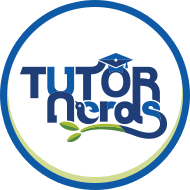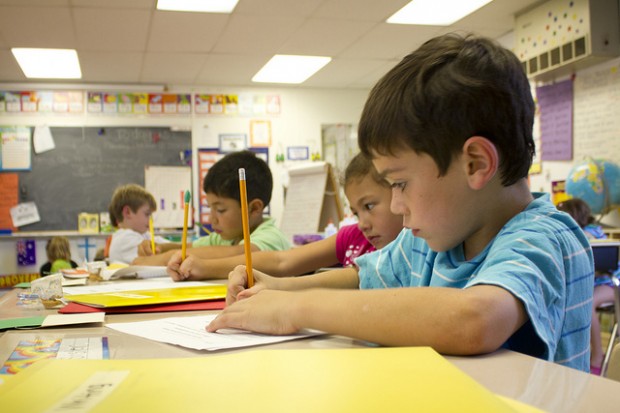How Do US Students Stack Up to International Students?


I speak to many families who are choosing to attend university abroad or who ask questions about how US secondary and post-secondary schools stack up to International schools. Of course, we have all heard of Oxford, Cambridge and the Sorbonne but how much does the average person know about International secondary school systems? How are US children ranking against elementary and high school students in other countries?
According to the New York Times.com, the US is scoring lower than average – as compared to other first world nations – in math and problem-solving skills (not the ones with an Irvine private math tutor from TutorNerds). This seems disheartening considering the high emphasis of math in our nation’s secondary school system. I would put problem-solving skills in a separate category although, admittedly, I don’t really see any classes or workshops offered in problem solving and, if it is being integrated into the general curriculum, many students don’t seem to be picking up on the idea of how to solve real world problems. So what’s missing? I work with many private students on problem solving as a private tutor but that is supplemental education, not public education (READ: “5 Fun Projects to Get Your Kids Interested in Math”).
Finland has continuously been ranked among the highest countries in math and literacy. So what does Finland offer- or require- that the US doesn’t? Finnish high school students take classes in physics, chemistry and biology as well as philosophy, music and two or more foreign languages. US students also take classes in the sciences but most students chose from the three classes listed above rather than take all of them. Most US students who had music class on a regular basis graduated high school back in the 80’s or 90’s and students who had the opportunity to take high school philosophy probably went to a private school. Along with most of you, I took one foreign language, but certainly not two or three.
What else is Finland offering, or asking, that the US is not? Also according to the New York Times.com, Finland has a very high standard for their teachers. Universities that offer teacher training programs recruit from the top 25% of high school graduating classes and many potential teachers compete for the same spots, making it very competitive. This is in great opposition to the US where many teachers are leaving the profession due to lay-offs or personal choice.
Canada also boasts a strong educational system. Canada has a different funding system for its public schools as well as highly meticulous teacher training programs.
According to The Atlantic.com, US schools scored somewhere in the middle of a ranking based on the results of the Programme for International Student Assessment (PISA), taken in 2012. However, this test was based largely on math skills with only small sections in reading skills and science. One subject does not give an accurate description of the students’ overall academic or educational abilities. What are the results of the non-core subjects as well as the all-important English language skills (or alternative language based on the country the test was given in)?
Forbes.com reports on the lack of foreign language requirements and opportunities for children in US schools. According to the article, only 18% of Americans are able to speak a second language while more than half, 53% to be exact, of Europeans speak a second language. This seems to leave American children at a disadvantage, especially with the world continuously shrinking.
If your school is lacking in foreign language instruction, hiring a private tutor is an option, but it may not be part of your child’s 8-3 school day instruction.
According to The Washington Post, US students are ranked about ‘average’ among students from 64 additional countries in the subjects of reading, math and science. I have yet to meet a student that was okay with the title of ‘average’.
So if students in the US are really lagging behind several other developed nations, how can we get our spot back or, at least, how can you get it back for your child?
1. Keep them on target before pushing them ahead
Children need to learn the basics before they can move onto advanced topics. Focus on things like multiplication, division and sounding out words before you move onto the Pythagorean Theorem. Young students who skip the basics often struggle with many, if not all, advanced topics.
2. Instill curiosity
Students who have a love of learning are more likely to actually learn. For many children, collecting water samples on a hot summer day is more interesting than looking at pictures of Ph balanced water in a text book. Can you blame them? Learning why rainbows exist is more fun if they can paint a rainbow along with the light refraction research (READ: “Five Books for the Nature Lover in You“).
3. Get some extra help
Hey, our country and our teachers are making a great effort, and they have a hard job but that doesn’t mean we can’t get a little extra help. Private tutors and supplemental education providers can really help bridge the gap. And since the educational gap is different for each child, the tutor can tailor a program to meet each individual student’s needs (READ: “Supplemental Education: Why Everyone Has a Tutor“).
4. Set the level high for the core subjects
Since US students are scoring somewhere in the middle of these international rankings, it suggests that we should be looking at math and English especially. Crack open that Geometry text book and get out that summer reading list (READ: “5 Ways to Encourage Summer Reading”).
5. Focus on a foreign language
Get your child into that 18% of Americans who speak a second language. Ask a relative from another country to help with speaking practice, buy a basic book of Spanish, French or Chinese words and pictures for your little one. Another highly recommended option is to hire a private tutor to help solidify the verb conjugation from their school text book. From Spanish to Farsi, Our in-home Orange County foreign language tutors are here to help!

The beginning of a new school year is crucial for establishing a strong academic performance. In other words, if your child wants to reach his or her potential, they can’t fall behind from the start. Hiring an Orange County private tutor is much more than extra academic help, it’s a confidence boost. Have your child be the first to raise their hand in the classroom by hiring a college educated tutor from TutorNerds. Contact us today!
100% Satisfaction Guarantee
You’ll love your tutor, or you don’t pay.

We will evaluate your situation and answer any questions. We will then individually match you with one of our tutors. Your tutor will recommend the best strategies for you based on your goals. You’ll work with the same tutor ongoing and you can schedule directly with your tutor.
100% Satisfaction Guarantee – You’ll love your tutor, or you don’t pay
| Cookie | Duration | Description |
|---|---|---|
| cookielawinfo-checkbox-analytics | 11 months | This cookie is set by GDPR Cookie Consent plugin. The cookie is used to store the user consent for the cookies in the category "Analytics". |
| cookielawinfo-checkbox-functional | 11 months | The cookie is set by GDPR cookie consent to record the user consent for the cookies in the category "Functional". |
| cookielawinfo-checkbox-necessary | 11 months | This cookie is set by GDPR Cookie Consent plugin. The cookies is used to store the user consent for the cookies in the category "Necessary". |
| cookielawinfo-checkbox-others | 11 months | This cookie is set by GDPR Cookie Consent plugin. The cookie is used to store the user consent for the cookies in the category "Other. |
| cookielawinfo-checkbox-performance | 11 months | This cookie is set by GDPR Cookie Consent plugin. The cookie is used to store the user consent for the cookies in the category "Performance". |
| viewed_cookie_policy | 11 months | The cookie is set by the GDPR Cookie Consent plugin and is used to store whether or not user has consented to the use of cookies. It does not store any personal data. |

